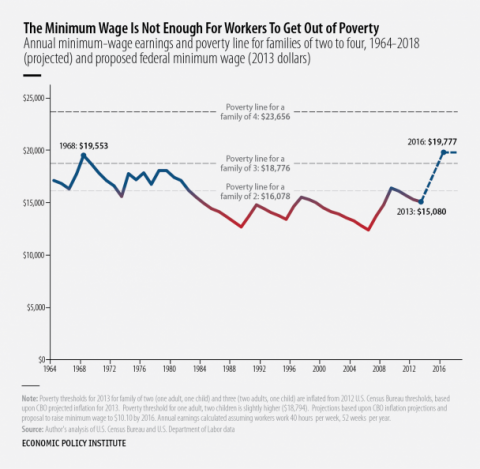As President Obama and others have noted, a parent who works full-time, year round at the federal minimum wage does not earn an income above the federal poverty line.
This wasn’t always the case. Up until the early 1980s, an annual minimum-wage income—after adjusting for inflation—was enough to keep a family of two above the poverty line. At its high point in 1968, the minimum wage was high enough for a family of three to be above the poverty line with the earnings of a full-time minimum-wage worker, although it still fell short for a family of four. The falling minimum wage has led to poverty and inequality. Today, at the federal minimum wage of $7.25 per hour, working 40 hours per week, 52 weeks per year yields an annual income of only $15,080. As shown in the figure, this is below the federal poverty line for families of two or more.


Spread the word